Anti-LGBTQ+ violence intensified in 2023 – and the government only made things worse
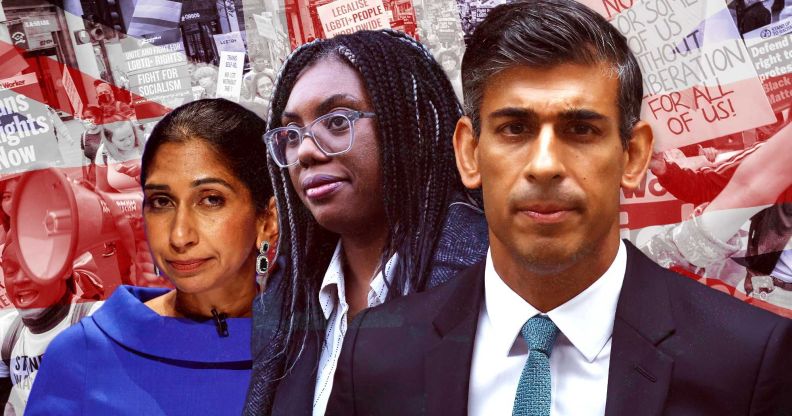
Suella Braverman, Kemi Badenoch and Rishi Sunak. (Getty Images)
When Rishi Sunak walked out on stage at the Conservative Party conference in October, there was already a quiet sense of unease among many queer people.
For any party leader, a conference speech presents an opportunity to appeal to your base while strengthening support among MPs and party members – but for Sunak, the stakes were even higher. Support for his party was in free fall, so his speech would have to make a splash.
And make a splash he did. Instead of offering concrete solutions to everyday issues faced by the public, Rishi Sunak used his time on stage to punch down on trans women once again.
“A man is a man, and a woman is a woman, that’s just common sense,” he said, before suggesting that people were being “bullied” into believing that “people can be any sex they want to be”.
Sunak’s speech hardly came out of left field – if anything, it was the culmination of months of degrading comments and cruel jibes. Even so, there was a sense afterwards that things had tipped irrevocably over the edge – that anti-trans hate had become such a mainstream part of political discourse that the road back to common sense appeared increasingly impassable.
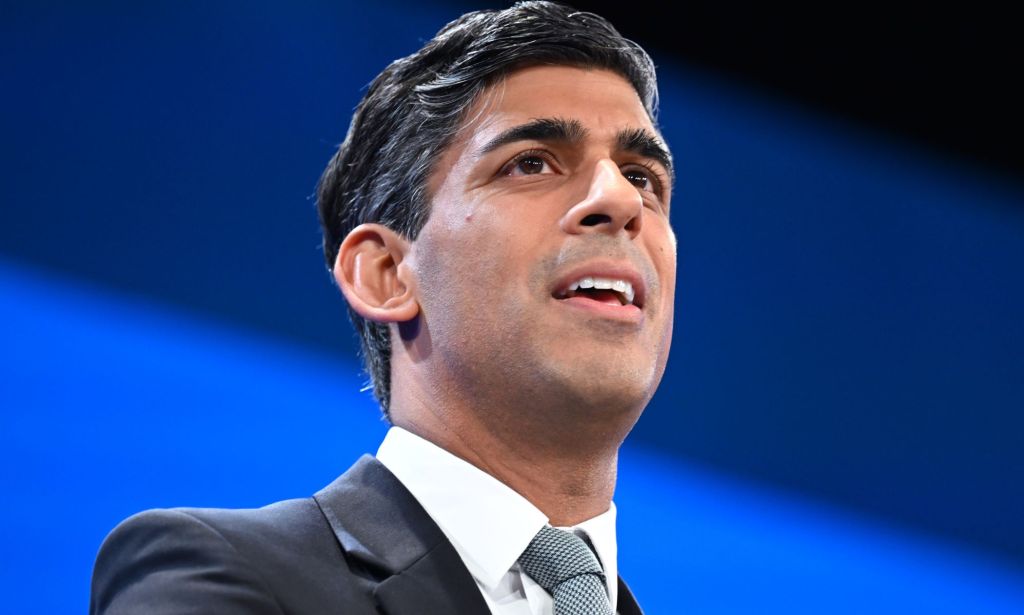
To say 2023 has been a difficult year for LGBTQ+ people in the UK would be an understatement. There have been moments of queer joy, protest and resilience, but there have also been incidents of shocking violence and aggression – and politicians have repeatedly made it worse, choosing to fan the flames of a culture war that threatens to engulf our hard-won rights.
Anti-LGBTQ+ violence is spiralling out of control
Just a few short weeks into 2023, a chilling sense of unease swept through queer communities as news broke that a schoolgirl had been stabbed to death in broad daylight in a park.
That girl’s name was Brianna Ghey – she was a 16-year-old trans girl whose parents later described as a “larger than life character who would leave a lasting impression on all that met her”.
Brianna should have had her whole life ahead of her, but it was taken from her in a senseless act of violence. For trans people, Brianna’s death became symbolic of the broader climate they were living in. Vigils were held across the UK, and queer people publicly and privately grieved for a teenager they could see parts of themselves in.

Even in the wake of such a senseless tragedy, nothing changed, and violence against LGBTQ+ people in the UK continued to worsen. Just months later, Clapham – one of London’s queerest districts – was left shaken when two people were stabbed in the smoking area of The Two Brewers, a popular gay bar.
Such an incident would have been brutal had it happened anywhere, but for many queer people, having two of their own attacked in one of their safe spaces left them with a gnawing sense of unease.
The Two Brewers stabbing was far from an isolated incident. Throughout 2023, social media was flooded with anecdotal stories of violence and aggression towards queer people. We heard from those who were attacked in public, or those who had slurs hurled at them, all because they dared to be visibly queer.
That’s backed up by the statistics. In October, UK government data showed that hate crimes overall had decreased by five per cent from the previous year – yet transphobic hate crimes in England and Wales were up by 11 per cent, with 4,732 incidents recorded.
Government hostility is stoking up fears
Even in the face of heightened aggression and violence, the government has done nothing beyond whipping up fear and hate. When Sunak stood up on stage at the Tory party conference, he was solidifying a position he had been repeating for months – that the sex a person is assigned at birth is immutable.
Instead of working to bring the temperature down in an increasingly heated culture war, Sunak repeatedly fell back on the same old talking points. He spent 2023 talking about whether or not a woman can have a penis, how many genders there are, and mocking trans women in private party meetings.
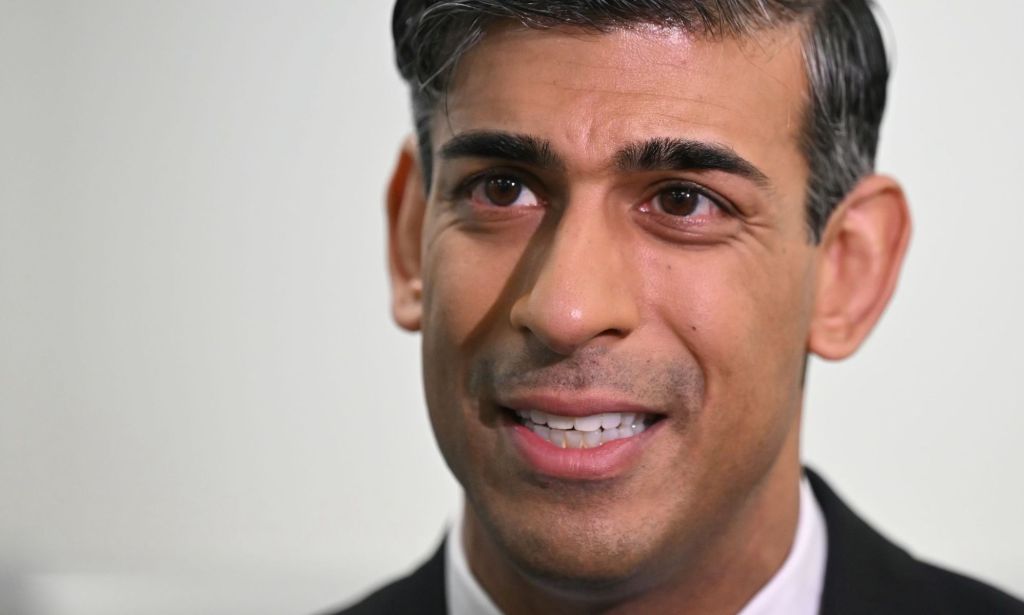
Sunak was far from alone – he has been joined on the frontlines of anti-trans discourse by some of the Conservative Party’s most prominent figures of the right, Suella Braverman and Kemi Badenoch.
During her stint as home secretary, Braverman ruthlessly repeated anti-trans talking points, insisting that trans women “have no place” in women’s hospital wards, while Badenoch – who is women and equalities minister – has apparently refused to outlaw conversion therapy because of her own personal belief in a conspiracy theory that gay people are transitioning so they can become straight.
The rhetoric has been relentless – and it’s not even just the Tories. Labour has also increasingly become embroiled in toxic rows that can be easily boiled down to biological essentialism. Keir Starmer, apparently in an effort to court conservative voters, felt the need to clarify that a woman is an “adult female”. Around the same time, the party quietly dropped its commitment to introducing self-identification for trans people.
But 2023 hasn’t just been defined by cruel jibes – anti-LGBTQ+ sentiment has also been slowly infecting policy. In the same year that a trans schoolgirl was stabbed to death in public, reports started circulating that the government wanted to ban young people socially transitioning at school.
Social transition generally involves changing a name, pronouns or self-presentation – and yet, government ministers spent much of this year whipping up a moral panic about young people daring to express themselves. In the end, ministers apparently figured out that introducing such a ban could be unlawful, so instead they settled on putting together “guidance” for schools which would allow children to socially transition with parental consent.
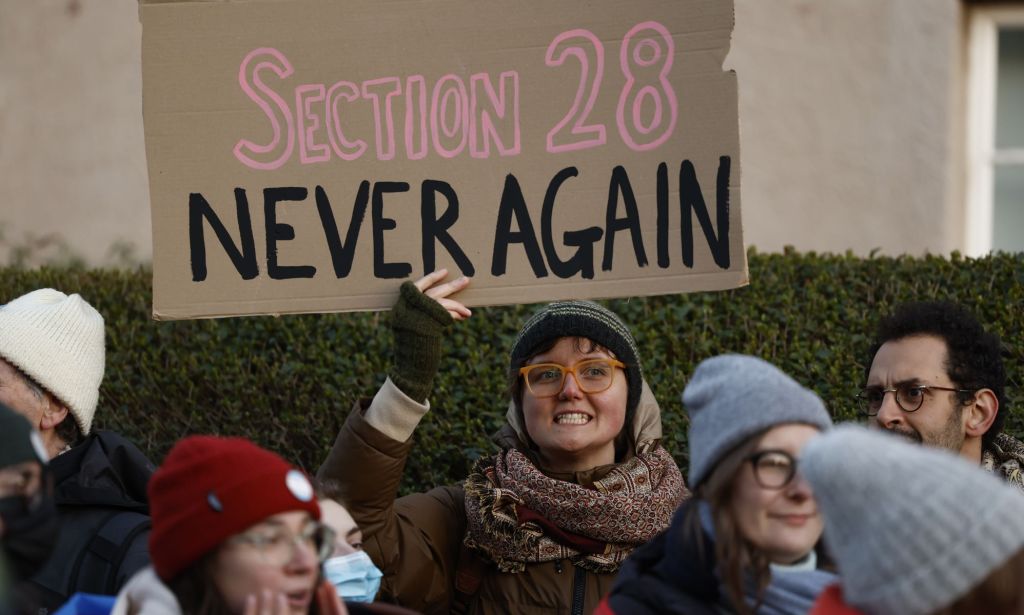
Discussions about those plans have focused on how eerily similar the guidance seems to Section 28, a since-scrapped legal amendment that prevented teachers and local authorities from “promoting” homosexuality. Two decades after that amendment was finally consigned to the dustbin of history, the government started building new policies that could recreate the hostile environment of the ’80s and ’90s.
The government also worked to make healthcare an even more hostile space for trans people. At the Conservative Party conference in October, then health secretary Steve Barclay announced that he wanted to ban trans women from women-only wards. Experts quickly pointed out that such a move would be both unworkable and potentially unlawful.
Ministers found time to pursue anti-LGBTQ+ policies in 2023, but finding time to ban conversion therapy was apparently impossible. We enter 2024 with no legislation in place, despite the fact that a ban was first promised by Theresa May in 2018. The last year has been marked by even more flip-flopping on the legislation. Simply put, the government can’t decide if it should listen to the research – and to LGBTQ+ people – and ban the practise, or if they should listen to the anti-trans campaigners who baselessly insist that transitioning is a form of conversion therapy.
Cleo Madeleine is communications officer at Gendered Intelligence, a charity that works to improve understanding of trans people in the UK. She says some some of the discourse about LGBTQ+ lives has been “vicious” over the last year – and she points out that things may yet get worse, with 2024 likely to be an election year.
Even in the face of profound anxiety, Madeleine’s advice is that queer people seek support and look after each other.
“It’s really scary in the moment, but ultimately we will come through this,” she says.
“Fundamentally, as trans people and as a queer community as a whole, our culture has changed. Our visibility has changed. So even in the event that this does continue – this anti-queer rhetoric continues to come out of the government or continues to play out in the media – you can’t put us back in the closet.”
While 2023 has been a difficult year, Madeleine points out that it is drawing to a close with no actual changes in legislation that prevent trans youth from expressing themselves at school, nor has anything changed for trans women in hospitals.
“Ultimately primary legislation has not changed. We are as protected by the laws in this country as we were before.”
Even so, many LGBTQ+ people will be struggling under the weight of anti-LGBTQ+ rhetoric from government. Madeleine wants people to know that there are support services out there who can help pull them through.
“We really recommend that people get in touch with Switchboard. They’re an amazing organisation. We also have our own support line which is specifically for people who are having a hard time waiting for gender identity services.”
Nadia Whittome, an LGBTQ+ Labour MP, also wants to end the year on a note of hope. Like Madeleine, she points out that 2024 will likely be an election year, meaning change could be right around the corner.
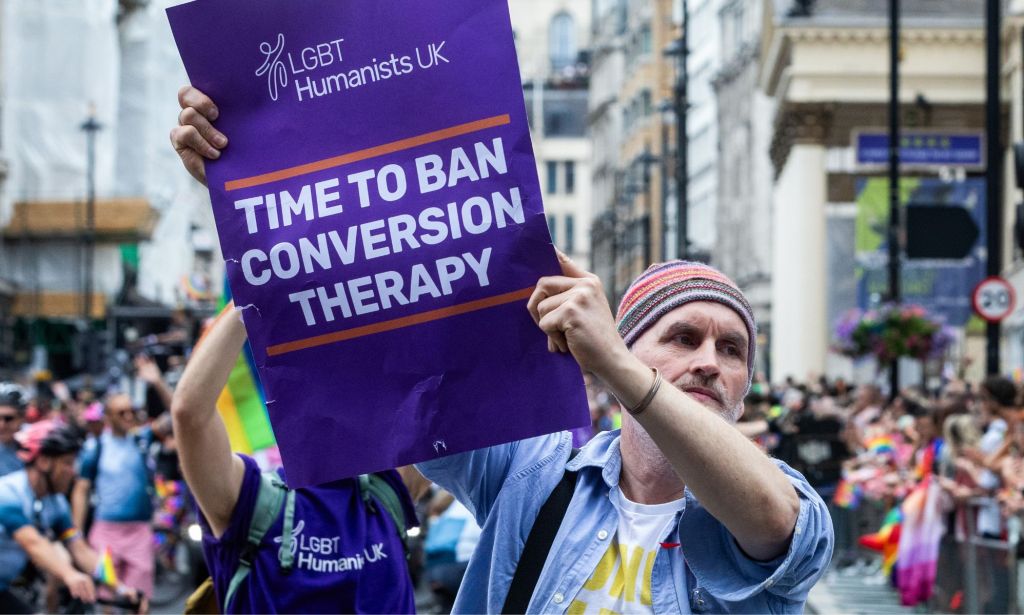
“From breaking their promise to ban conversion therapy, to whipping up moral panic about trans people, to letting gender-affirming healthcare reach breaking point, the Tories’ treatment of LGBT+ people this year has been abhorrent,” Whittome says.
“Instead of cheering on the rising hate that’s putting our community’s safety at risk, we urgently need a government that grounds its policies towards LGBT+ people in our real experiences, and particularly the experiences of the most marginalised among us.
“The list of reasons the Conservatives deserve to lose the next election is as long as my arm, but the fact that they have turned back the clock on LGBT+ progress is a significant one. I hope 2024 sees them voted out.”
Anyone who has witnessed or experienced a hate crime is urged to call the police on 101, Crimestoppers anonymously on 0800 555 111 or visit the True Vision website. In an emergency, always dial 999.

